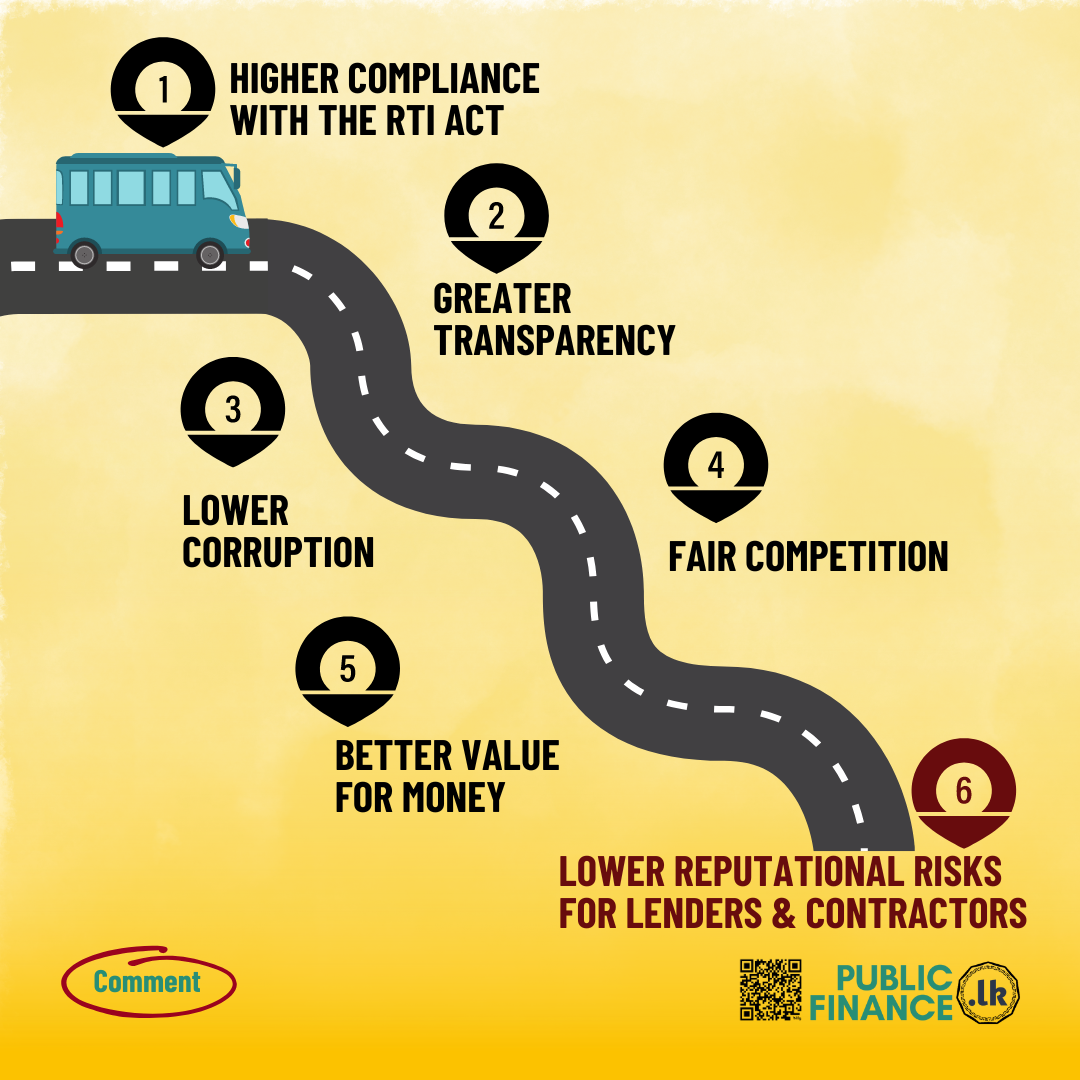

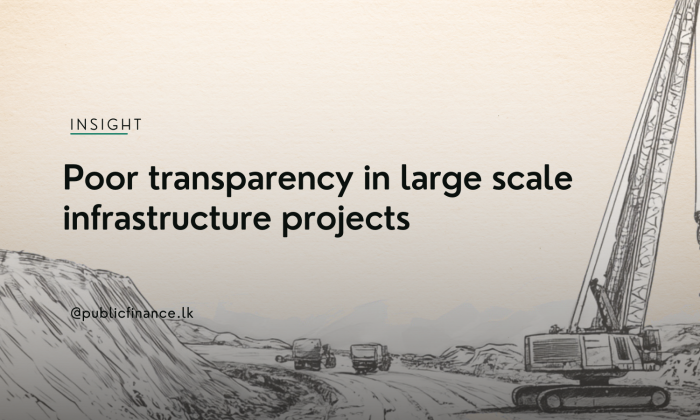
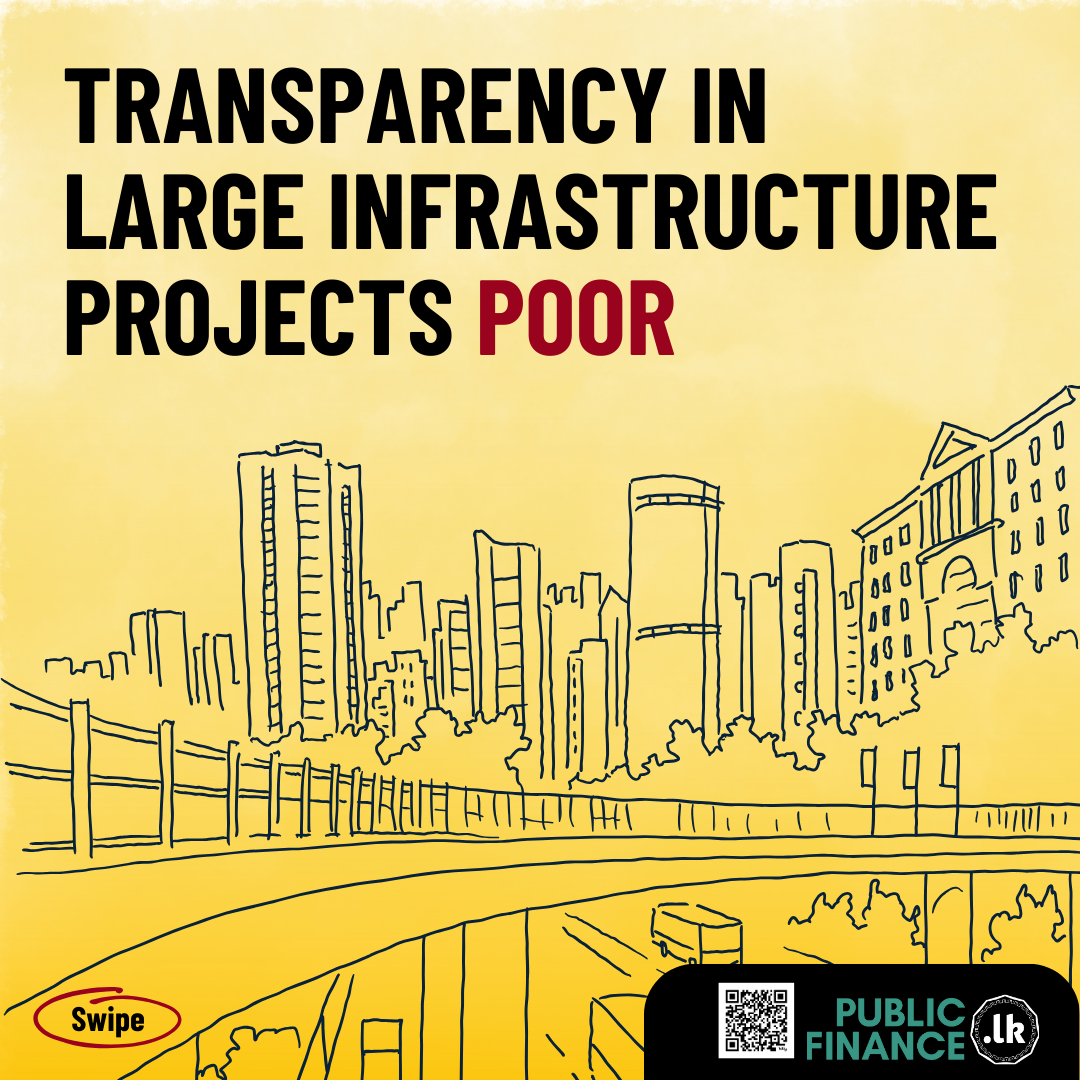
Section 9 of the RTI Act No. 12 of 2016 mandates the Minister responsible for an infrastructure project to disclose project information. The information should be proactively disclosed for foreign and locally funded projects exceeding USD 100,000 and LKR 500,000 respectively, at least three months prior to commencement. The disclosures are to be made under 5 broad categories: project details, rationale and beneficiaries, budget and financial details, approvals and clearances, and procurements and contracts.
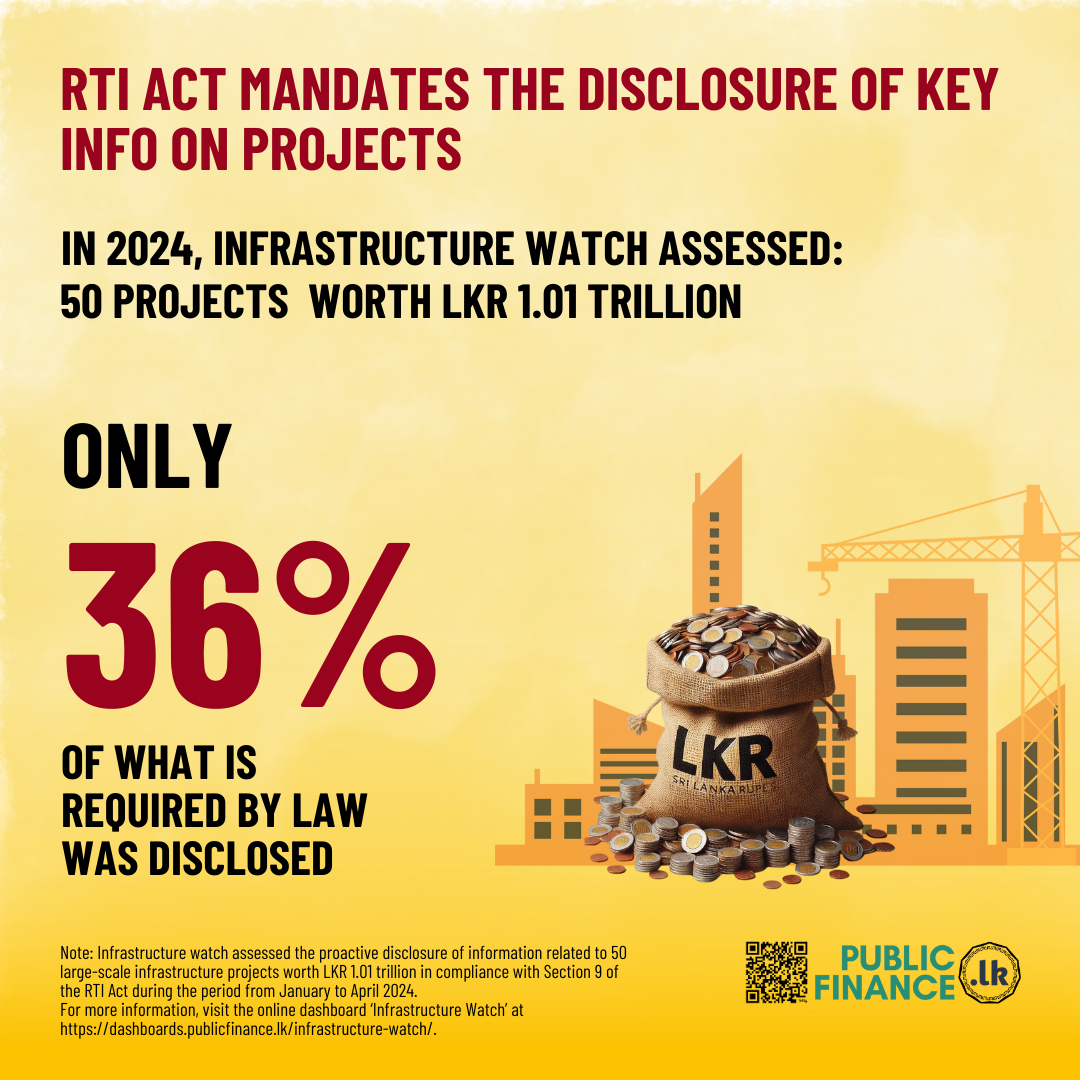
PublicFinance.LK’s dashboard, Infrastructure Watch revealed that despite the Right to Information (RTI) Act’s proactive disclosure requirement, only 36% of information required by law was disclosed.
This is even more concerning considering that although eight years has passed since the RTI Act was enacted, proactive disclosure by the government still remains poor.
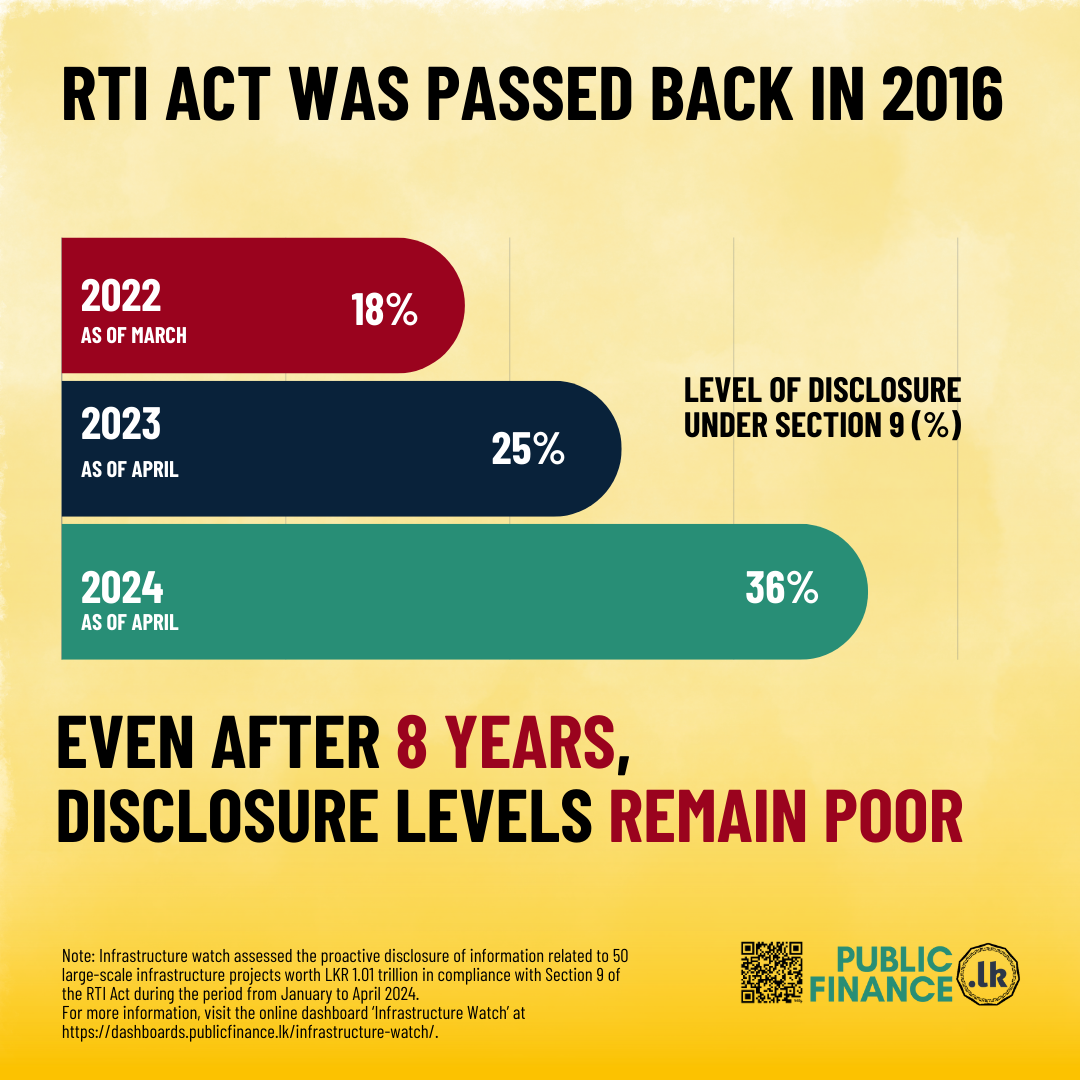
Corruption in public spending is often linked to public procurement. The dashboard shows that disclosure of procurement related information was alarmingly low at 21%. Disclosure of information on project approvals and clearances remain at a critically low level of 16%.
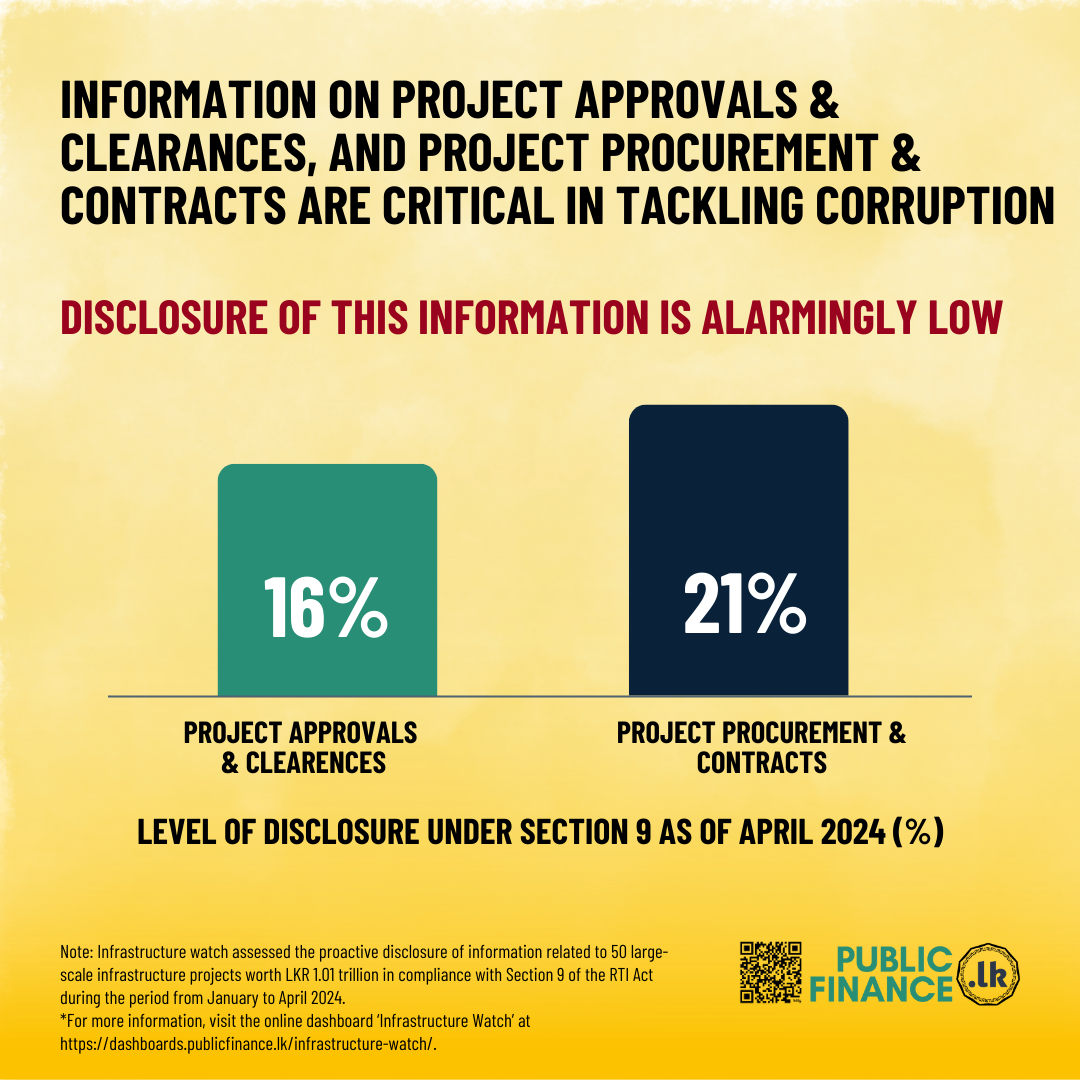
With regard to foreign-financed projects, compliance with the law is poor as well. In 2024, the government has disclosed only 40% of the required information on foreign-financed projects. Foreign lenders can help improve transparency by linking their project financing to government compliance with the Right to Information Act.
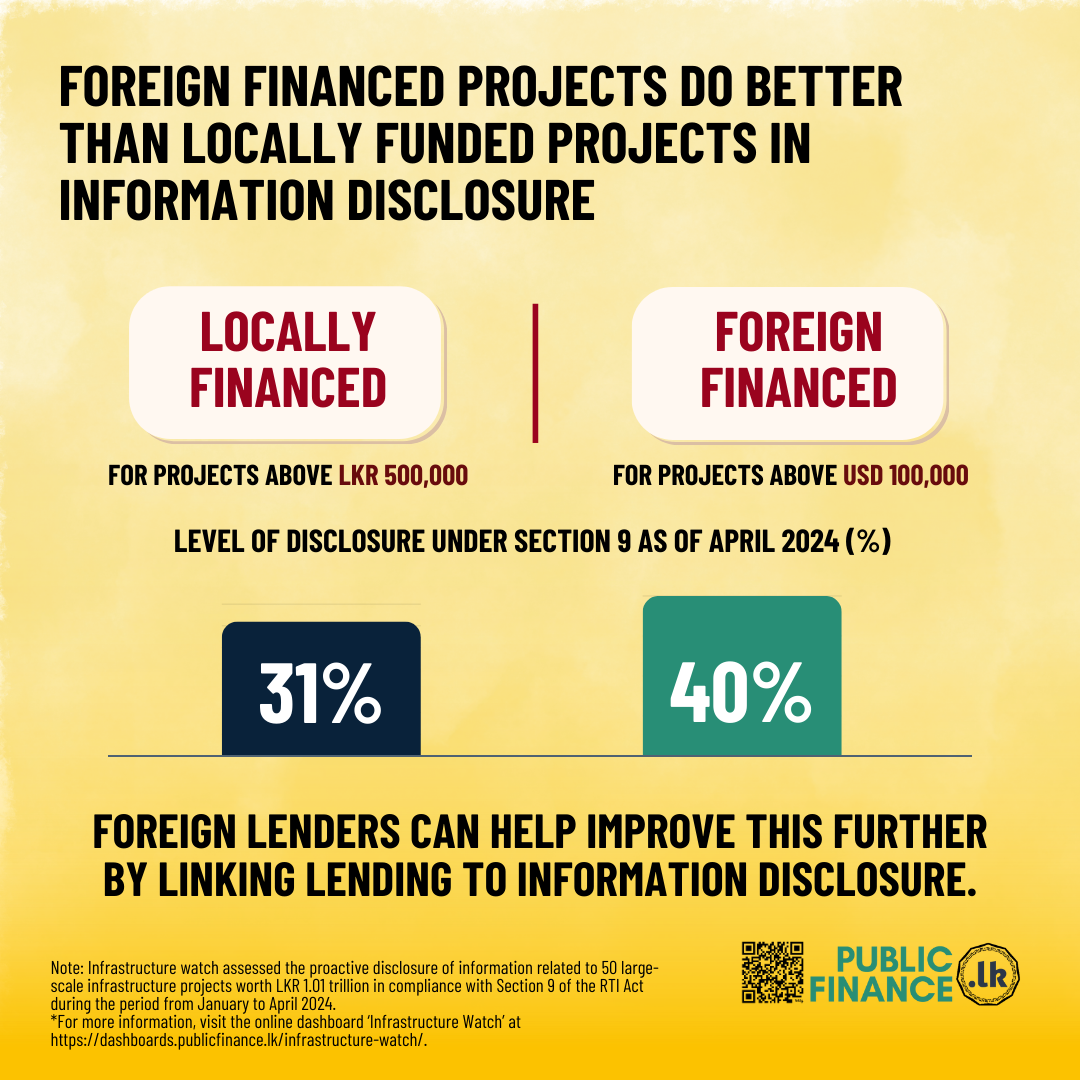
Improving transparency is not only in the interest of the Sri Lankan public but also benefits lenders and contractors involved in these projects.
To get more information, visit Infrastructure Watch
